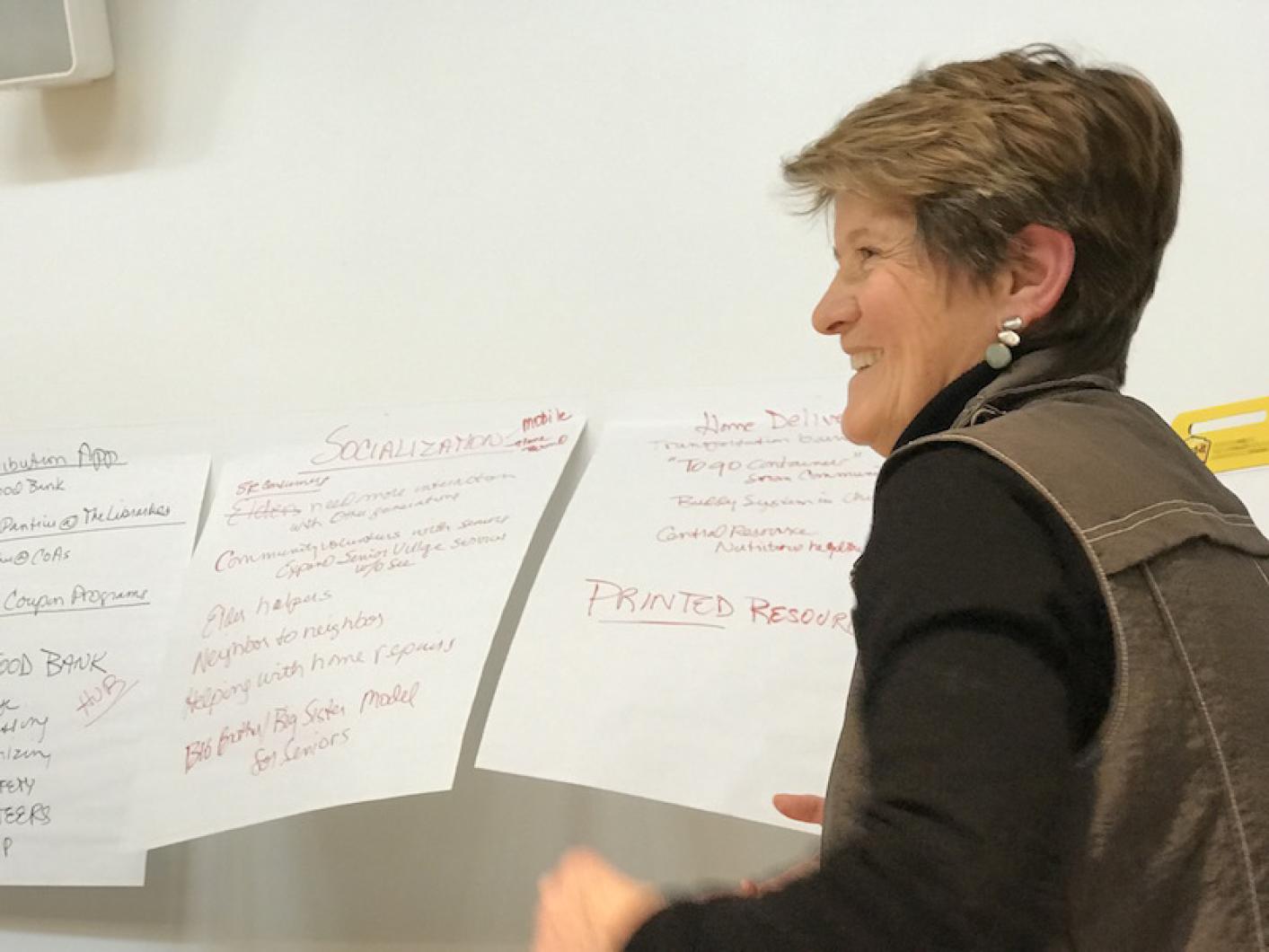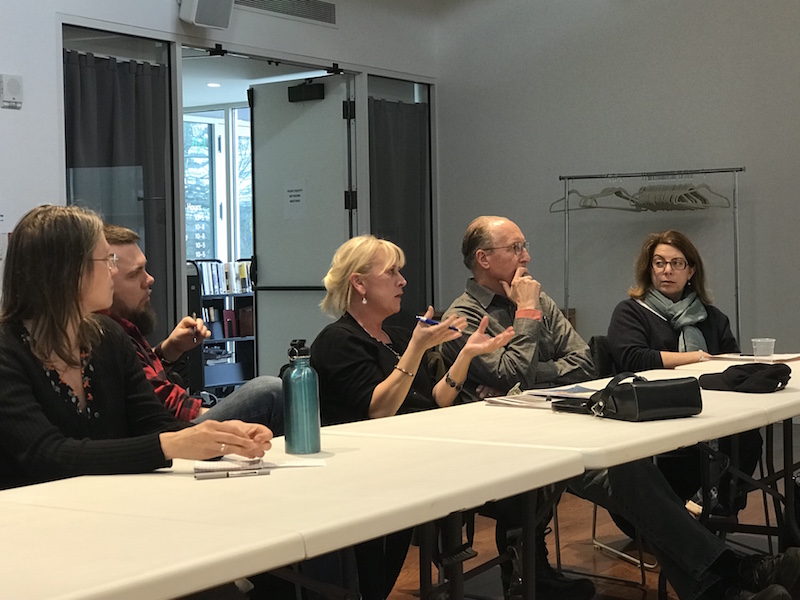The Vineyard Food Equity Network is working to bridge the gap between the bounty of food available to hungry Islanders and reaching people in need, especially seniors.
This was the conclusion of a meeting last week of the network, an association of people working on the front lines of food insecurity issues around the Island that formed two years ago.
Island markets, farmers and cash donors are generous, and the Greater Boston Food Bank will deliver to New Bedford for a Vineyard pickup. What’s trickier, said Island Grown Initiative executive director Rebecca Haag, is “expanding opportunities for people to get at that food.”
While the Meals on Wheels program serves a growing number of shut-ins over age 60, many seniors need more food to get through the week.
“Some Meals on Wheels clients do not have other food in the house and are sharing that food with their pets,” Noli Taylor, community food educator for IGI, told the gathering last Thursday
Closing the gap between hungry Islanders of all ages and nutritious food will first require spreading the news that there is plenty available for them, members said.
“Anyone can go to the pantries at the council on aging,” said Michele Dupon, nutrition coordinator and care manager for Elder Services of Cape Cod and the Islands. “They would never turn anyone away.”
Ms. Dupon said the Edgartown Council on Aging welcomes all ages — including families — to the $2 Tuesday and $5 Friday hot lunches, which are also available to go. The center on Daggett street also sells frozen homemade soups and macaroni and cheese.
“I’m trying to get the word out because it’s so reasonable,” Ms. Dupon said.
To provide more soups and other prepared foods, the Food Equity Network is developing a program that will process gleaned produce and market donations starting as soon as this autumn.
“We’re trying to figure out what commercial kitchens might be available, researching the regulations, speaking with different chefs, brainstorming volunteers,” said Sophie Abrams Mazza, IGI food equity and recovery director.
“Fall is a really good time for a program like this, because people are a little less busy, kitchens have more availability and lots of root crops and other harvests are still available,” she said.
Down the road, the network also wants to establish a central location where food can be stored, processed and distributed, Ms. Taylor said.
“All this raw product is coming in, and there’s no central place to process it,” she said.
In an effort to reach more seniors, network members are also working on a printed calendar listing all the Island’s food resources, schedules and contact information for individuals who don’t have access to or aren’t comfortable using home computers.
But some elders may not be able to take advantage of the offerings because they lack transportation or are too frail to go out. While several agencies, including Serving Hands and Island churches that host community suppers, deliver food to Vineyard shut-ins, there are not enough volunteers.
“There’s a need to connect more community volunteers to elders,” Ms. Taylor said, not just to deliver meals and groceries, but to socialize as well. “Elders could use more interaction with other people and people of different ages.”
Steve Bernier, owner of Cronig’s Markets, said he sees a likely volunteer force among his own customers. “I see a lot of young retirees who are longing to plug into this Island. They need someone to gather them in.”
Ms. Dupon agreed that more volunteers are needed to assist elderly Islanders. When a widespread power outage hit the Vineyard during the early March northeaster, she said she was kept busy checking on vulnerable seniors in their homes.
“It was pretty scary this storm,” she said. “It would be nice to have another layer of protection in our community.”








Comments
Comment policy »